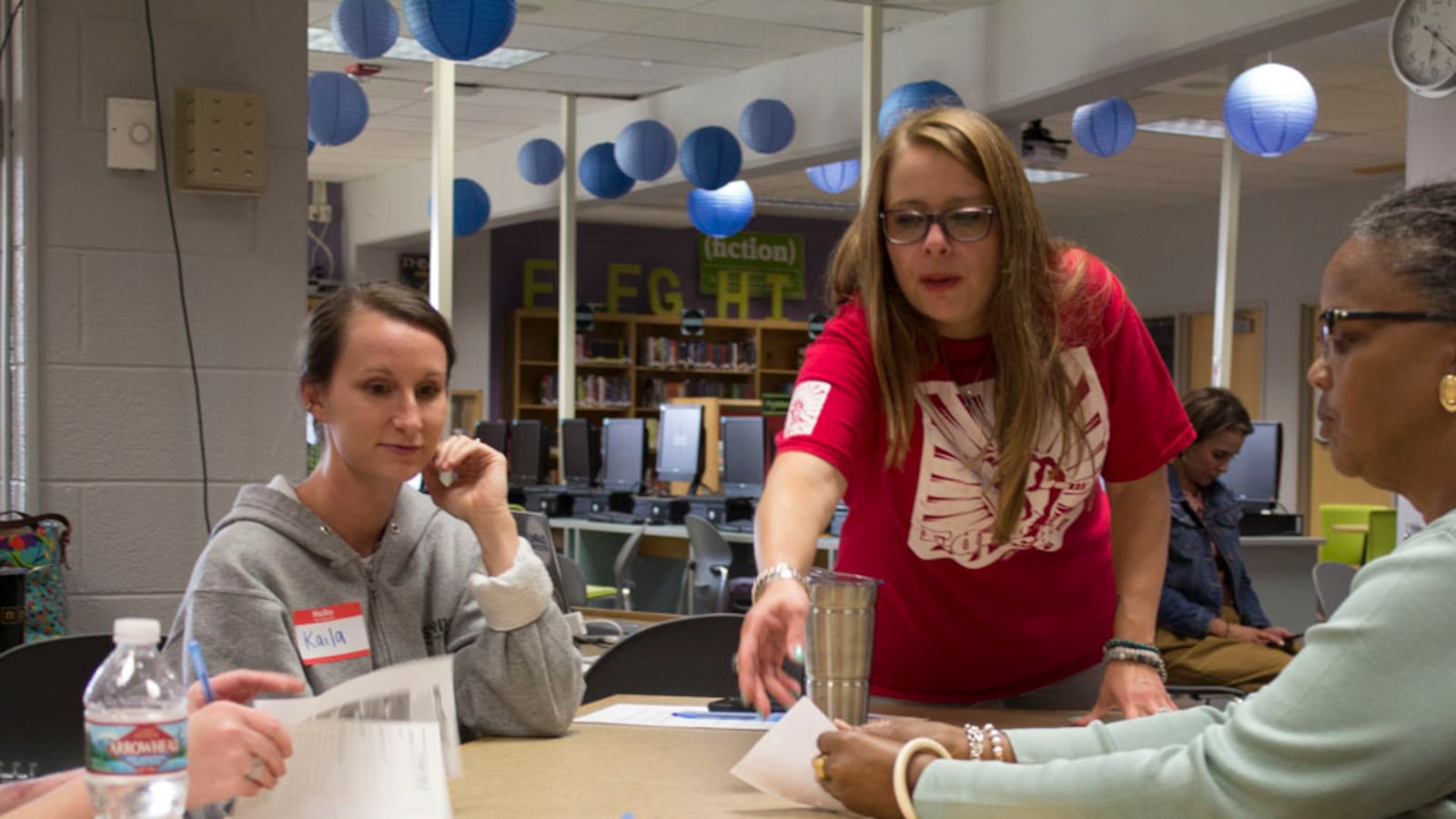One of Jefferson County’s highest-need schools is about to undergo a transition, expanding efforts to not just teach kids but meet the many needs of families in the area.
As the academic year begins, Jefferson Junior-Senior High School in Edgewater will begin the process of becoming a community school. That means the Jeffco Public school will act as a hub for community organizations to provide so-called “wraparound services” — such as English language classes, job training and medical care — to parents and families.
Community schools are an emerging trend in education, championed by teachers unions and others who believe tackling poverty, health and behavior challenges facing students and their families can help boost learning.
Although approaches to community schools differ nationwide, they share that holistic approach. One U.S. district heavily invested in the concept, New York City, has pumped millions of dollars into transforming more than 130 high-need schools into community schools over three years.
The community schools approach is also in harmony with the philosophy of new Jeffco Superintendent Jason Glass, who has prioritized addressing poverty and other student needs.
Jefferson teachers began leading the effort last summer, said Rhiannon Wenning, a Jefferson social studies teacher and the community school site coordinator. They hope to disrupt patterns such as the school-to-prison pipeline by better engaging parents and families in their child’s education.
Jefferson’s demographics make it a good fit for the community school model: The junior-senior high school serves students in the area from grades 7 to 12. Just over 90 percent of Jefferson students qualify for free and reduced priced lunch, and the school is 82 percent Latino.
Jefferson Principal Michael James said the school has had community partnerships and run family-focused programs for some time, but committing to a community school model will expand that effort.
“It’s a reorganization for the better, for ensuring that we have good systems in place for our families,” James said. “It’s not a huge new thing. It’s really not.”
The biggest changes, Wenning said, come with operating the center and ascribing to the “six pillars” of community schools as defined by national organizations such as the Coalition for Community Schools and the National Center for Community Schools. Local nonprofit Edgewater Collective is working to establish partnerships with local organizations and help staff the center.
“Over the last four years we’ve been building a great group of community partners that really want to invest in our schools,” said Joel Newton, founder of the Edgewater Collective. “This is the logical next step to solidify the connection with our schools and bring partners into the school building.”
Wenning said those pillars, which include wraparound services, restorative discipline practices, community engagement and curriculum that is relevant to students’ lives fit neatly into some of Jeffco’s school expectations.
For Wenning, making sure students have support and find school materials engaging and relatable is the ideal result from the community school transition. Research into whether community schools move the needle academically, however, has shown uneven results.
“If I’m being a good teacher and a culturally relevant teacher, I’m gonna ensure (my curriculum) includes the history of my students,” Wenning said at a recent community forum.
James said the transition to community school will be gradual, as Jefferson is still seeking support to remain open beyond the school day and hoping for funding from national organizations that has not yet come to fruition. James said as of now, the school budget will have to swallow the cost of added resources.
Wenning said the principal had committed to funding her position as site coordinator part-time, and that she was pursuing other funding sources.
Even with funding uncertainties, Wenning has faith in the ultimate success of the model. She said she expects that after a few years, students and the surrounding community will see a drastic change.
“I want Jefferson to be a school Edgewater wants,” Wenning said in an interview. “If you don’t like something with your neighborhood school, then go into it and make it better… It’s the best use of not only taxpayer dollars, but it’s the best scenario for our kids.”

